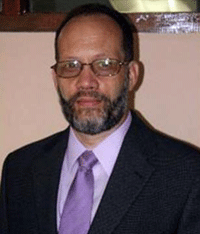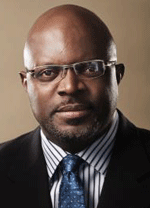THE surprising ‘news’ about the ‘readiness’ of President Barack Obama’s administration to introduce unmanned surveillance drones in the Caribbean region in a new strategy to combat the notorious illegal drug trade, has come like a virtual ‘fait accompli’, or done deed! Almost simultaneous with media reportings out of Washington last Sunday of the planned operation of a “drones” surveillance project in the Caribbean by the US Customs
 |
 |
 |
and Border Protection (CBP) agency, Barbados’ Attorney General and Minister of Home Affairs, Adriel Brathwaite, was enthusiastically embracing this latest development in the US war on drug trafficking.
Given the abomination of the drug culture that has spawned much of the gun-related gang warfare, rampage of killings and robberies that continue to create havoc with lives and economies in too many CARICOM countries, it may be tempting for others to also welcome the US drones project.
However, it is felt that such official responses ought to be delayed for some prior information-sharing on the modalities of operations of unmanned drones in this region’s air space with assurances against misuse of intelligence and technology that could result in the loss of lives in the process of tracking and disrupting the lucrative illegal trade in drugs.
After seemingly satisfying itself about the effectiveness of the anti-narco-trafficking surveillance unmanned drone for the Caribbean by secret trial exercises in The Bahamas, the Obama administration chose to make public its plan to involve governments in this region.
QUESTIONS
Questions of relevance, therefore, would include: When and where such “consultations” occur? There has been no mention about the drones project “cooperation” in the communiqué issued on the recent 33rd Caricom Summit in St Lucia.
Nor any allusion to it either by the Community’s Secretary General Irwin LaRocque or current Chairman, Prime Minister Kenny Anthony. There has been no references to it by the Community’s Prime Ministerial Committee on Crime and Security, current chairman of which is T&T’s Prime Minister Kamla Persad-Bissesar.
And it has not yet been discussed for approval at the level of the Regional Security System (RSS), according to those who should know.
In the circumstances, representative institutions and organizations in the Caribbean would undoubtedly have an interest to learn whether CARICOM governments have been briefed on the project ?
If so, have they satisfied themselves about its usefulness without diminishing the region’s political sovereignty and territorial integrity?
After all, the intended introduction by Washington of an unmanned surveillance vehicle to intensify its war against drug-trafficking, has now entered public consciousness in the Caribbean at a critical period.
SEPARATE ‘SHIPRIDER’ ACCORDS
Currently, Americans themselves are raising serious questions about the legality and morality of a “war” being waged by the Obama administration, via a different and horrifying “drones” project.
This one is designed to target and kill foreign individuals, of varying nationalities, regarded as being “terrorists” who are threats to US security.
The implications of the use of a fleet of such unmanned “drones” are discussed in the current edition of the widely read US magazine, “Esquire”. It is titled “The Lethal Presidency of Barack Obama”.
It is of relevance to recall here how passionate debates about protection of Caribbean sovereignty and territorial integrity had surfaced during the 1990s.
Then, some CARICOM states had become engaged with a USA initiative for a “shiprider” programme designed to more effectively arrest the narco-trafficking trade, via this region, with Europe and North America
That was the decade when CARICOM members, starting with Trinidad and Tobago, later Jamaica and subsequently Barbados, had separately entered into so-called “Shiprider Agreements” with the USA for more effective responses against the despicable and ruthless dealers in illegal drugs, primarily cocaine and marijuana.
The lack of a regional political will in forging unanimity for crafting a common accord applicable to ALL Community partners was a lamentable feature of that decade. It was also the decade when Barbados hosted the historic USA/Caribbean Summit with then President Bill Clinton.
That event had resulted in a quite promising ‘Partnership for Prosperity and Security’ accord. Sadly, however, significant aspects were to remain unfulfilled during both the Clinton and George W. Bush administrations.
Now this region is being encouraged to again facilitate, in the interest of regional security and the ongoing war against drug trafficking, the soon to be operational unmanned surveillance ‘drones project’ of the Obama presidency…’.
‘ESQUIRE’ ON “KILLING” DRONES
It may be inconvenient for some to note that the United States Homeland Security Secretary, Janet Napolitano’s disclosure of the unmanned drone to be used in this region, coincides with a different ‘drones project’—as alluded to earlier—of the Obama administration, the one designed to kill targeted foreigners in America’s war against “international terrorism”.
It is in this context that readers should know that the current edition of the “Esquire” magazine presents a fascinating article by the writer Tom Junod on “The Lethal Presidency of Barack Obama”:
“The targeted-killing program” said Junod, “is a vision—a vision of how war could be and never has been. It is a war of individuals instead of armies. It is intelligence instead of brute force. It is a war of both technological precision and moral discrimination. It is a war as an alternative to war: It saves lives by ending one life. But when war stops being war, does it become something like murder?”
According to the Esquire’s expose’–written in personal appealing language directly addressed to the US President—some 2000 targeted foreign nationals and at least two American-born citizens have fallen victims to the “lethal presidency” of Obama.
“You are a historic figure Mr President”, writes the author. “You are not only the first African-American President. You are the first who has made use of your power to target and kill individuals identified as a threat to the United States throughout your entire term….
“You are the first President to make the killing of targeted individuals the focus of our military operations; of our intelligence, of our national-security strategy and, some argue, our foreign policy….But no President has ever waged war by killing enemies one by one, targeting them individually for execution, wherever they are…”
Of immediate interest to this region is the position(s) to be adopted by CARICOM governments, in reaching out to “cooperate” with the Obama administration on the impending introduction of the unmanned drone in Caribbean air space:
Would they, for example, first seek to be properly briefed to satisfy themselves about Washington’s “assurances” on the usefulness of this project –without comprising our political sovereignty and the fundamental human rights of Caribbean citizens?
Similar questions had also surfaced during the tense “negotiations” for the negotiated US/Caribbean “shiprider” accords!



.jpg)








